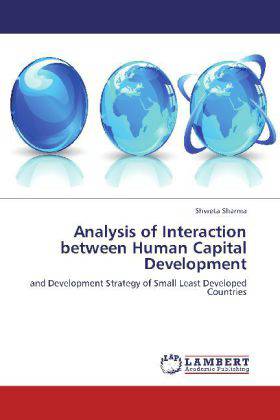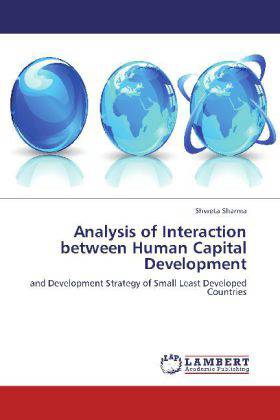
- Afhalen na 1 uur in een winkel met voorraad
- Gratis thuislevering in België vanaf € 30
- Ruim aanbod met 7 miljoen producten
- Afhalen na 1 uur in een winkel met voorraad
- Gratis thuislevering in België vanaf € 30
- Ruim aanbod met 7 miljoen producten
Zoeken
Analysis of Interaction between Human Capital Development
and Development Strategy of Small Least Developed Countries
Shweta Sharma
Paperback | Engels
€ 77,95
+ 155 punten
Omschrijving
Cruciality of Human Capital formation is duly established by Botswana s development experience. In the first phase Botswana achieved universal primary education which gave its economy a good start in terms of adaptable work force to primary and secondary sectors. In the second phase, Botswana ambitiously embarked upon reforms towards secondary education, and has achieved respectable enrolments at secondary level. Now Botswana s new tertiary education policy attempts to intensify the tertiary level enrolments, besides encouraging R&D activity. These timely shits from primary to secondary and secondary to tertiary level of education have equipped Botswana to exploit the opportunities offered by natural resources at home and global opportunities abroad. Hence, Botswana reconfirms the successful interaction of Human capital as an important element of its development. On the other hand, Eritrea represents the other category where immediate social and political problems hinder the Human Capital formation.
Specificaties
Betrokkenen
- Auteur(s):
- Uitgeverij:
Inhoud
- Aantal bladzijden:
- 412
- Taal:
- Engels
Eigenschappen
- Productcode (EAN):
- 9783659137006
- Verschijningsdatum:
- 18/06/2012
- Uitvoering:
- Paperback
- Afmetingen:
- 152 mm x 220 mm
- Gewicht:
- 603 g

Alleen bij Standaard Boekhandel
+ 155 punten op je klantenkaart van Standaard Boekhandel
Beoordelingen
We publiceren alleen reviews die voldoen aan de voorwaarden voor reviews. Bekijk onze voorwaarden voor reviews.











